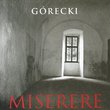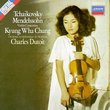| All Artists: Schubert, Tokyo String Quartet Title: String Quartets 4 & 14 Members Wishing: 0 Total Copies: 0 Label: RCA Release Date: 10/10/1990 Genre: Classical Style: Chamber Music Number of Discs: 1 SwapaCD Credits: 1 UPC: 078635799026 |
Search - Schubert, Tokyo String Quartet :: String Quartets 4 & 14
 | Schubert, Tokyo String Quartet String Quartets 4 & 14 Genre: Classical
Schubert's string quartet no. 4 & 14 performed by the Tokyo string quartet. previously listened too, but cd is fine. |
CD DetailsSynopsis
Product Description Schubert's string quartet no. 4 & 14 performed by the Tokyo string quartet. previously listened too, but cd is fine. Similar CDs
Similarly Requested CDs
|
CD ReviewsAn early and a late quartet from one of the great masters of Craig Matteson | Ann Arbor, MI | 02/02/2006 (5 out of 5 stars) "Schubert learned a lot as he played the viola for string quartets with his father and brothers. He learned about music and he learned about the sound and musical possibilities for that ensemble. He began writing them while in his early teens and the quartet no. 4 (D. 46) included here was written when he was only 16. It is a piece of wonderful vitality, beautiful melodies (what else would you expect), and the harmonies you associate with Schubert. It is certainly a precocious work, if not profound. In passing, it is worth noting that the numbers of the Schubert quartets tell you almost nothing about the order of composition (particularly of the early quartets), so go by the Deutsch numbers. The other quartet on this disk is the glorious "Death and the Maiden" quartet # 14 (D. 810). It is not only one of Schubert's great works; it is one of the great works of music ever written by anyone. The name comes from the theme used in the second movement. It is a theme and variations movement based on the melody of Schubert's song from 1817. The movement is mournful, exquisite, and makes a great deal of the materials provided by the theme. The name of the quartet and the power of the second movement have led to endless discussions of how programmatically the entire quartet should be interpreted. The first movement is sharp, dramatic, and can be heard, as a contest with something fateful and the title of the quartet does seem appropriate here as well. The scherzo and finale don't seem to have an obvious connection to a story although some have heard the last movement as a kind of tarantella (the manic dance supposedly caused by the bite of a tarantula and might avoid or lead to death). I personally do not believe in a specific story to the quartet, but the depth of emotional expression is great as is the musical sophistication. The Scherzo has a kind of rollicking minor key richness that one would immediately identify as a composition by Schubert and is a delight, and the syncopations in the last movement always draw me in no matter how many times I hear the work. However, for me, it is the first two big movements that mean so much. The first movement opens with that biting and haunting scream from the strings and immediately into a melody that almost seems to be a plea for the horror to stop, but then builds the suspense from pianissimo back the same opening sounds. It is a great movement and this is a great quartet. The Tokyo String Quartet has changed two of its members since this recording was made in 1989, but retain the founding violist and one of the violinists. They have a beautiful sound here and the opening strains of the "Death and the Maiden" quartet that open the album are wonderful. The fifths have a wonderful buzz to them that adds to their haunting quality. This is a well recorded and finely performed version of both these works. What would I wish for? I wanted more bite and sharpness in the opening movement. It isn't that this version gets it wrong; it is simply that a more sharp sound could have made the drama of the movement that much more. It is the same with the last movement of this quartet. However, I still love listening to this disk. I don't want to make this preference of mine to seem like a fatal criticism of the performance. I very much recommend this disk. One side note, the first violinist here, Peter Oundjian, is now the Music Director of the famed Toronto Symphony." Schubert playing where beautiful tone comes first Santa Fe Listener | Santa Fe, NM USA | 01/08/2006 (5 out of 5 stars) "At the time that the Tokyo Quartet made this recording (1989), they still had three members who were Japanse, the exception being a Canadian, first violinist Peter Oundjian. As a group they made no claim to the stylistic authority of the Budapest, Alban Berg, or Amadeus quartets. Their strength was a beaautiful tone, amiable coherence in how their playing meshed, and maintaining a lyrical line. Frankly, this can sound a bit brainless in late Beethoven, but Schubert begs for beauty, so these Schubert readings are quite successful.
The featured work here is Schubert's geatest quarter, #14 'Death and the Maiden.' The Tokyo smooth aout the Beethovenian struggle of the first movment, but only marginlly. Their gorgeous tone in the slow movement, based on Schubert's song, is matched only by the Quartetto Italiano--the tempo here, by the way, is much faster than the song is ever sung, but at 10 min. the Alaban Berg Quartet is actually 5 min. faster. By cmparison the Tokyo Quartet doesn't dig in, either; their finale skims along with thrilling unanimity and again, that gorgeous tone. I don't mean to imply that this is a superficial reading; it just emphasizes beauty over dramatic struggle. The pairing is the early Quartet #4 D. 46, written when Schubert was sixteen (by which time he had already composed 3 symphonies and 200 songs, including Erlkonig and Gretchen am Spinnrade). There is a moody adagio introduction in canon, followed by a tumbling allegro based on a rhythmic motto, in imitaiton of Beethoven. The andante echoes the later quartet in its inward theme, which is like a strophic song. Haydn peeks into the classical minuet, and the finale gives us an infectious rondo that's a tuoch too cautious to be really memorable. Again the Tokyo performs with such finesse that their stylishness erases obvious suggestions of immaturity in the work. I can imagine more aggressive and exploratory readings of these two quartets, but on their own terms, the Tokyo offers luscious Schubert without apology." |

 Track Listings (8) - Disc #1
Track Listings (8) - Disc #1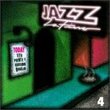

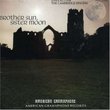

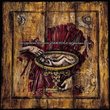


![Across The Universe [Deluxe Edition]](https://nationalbookswap.com/cd//m/51/1251/1241251.jpg)
